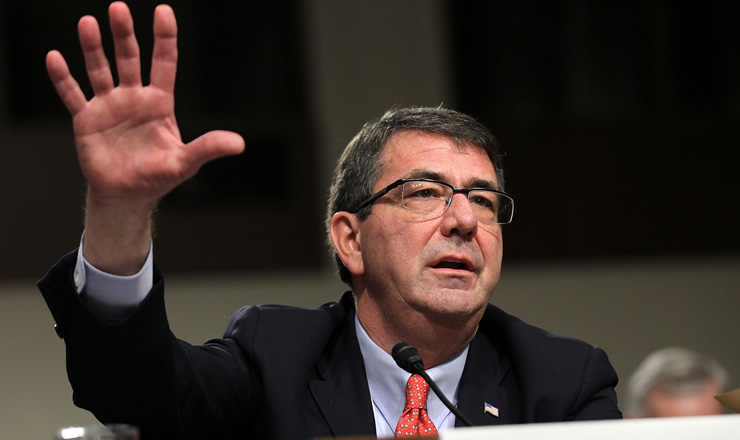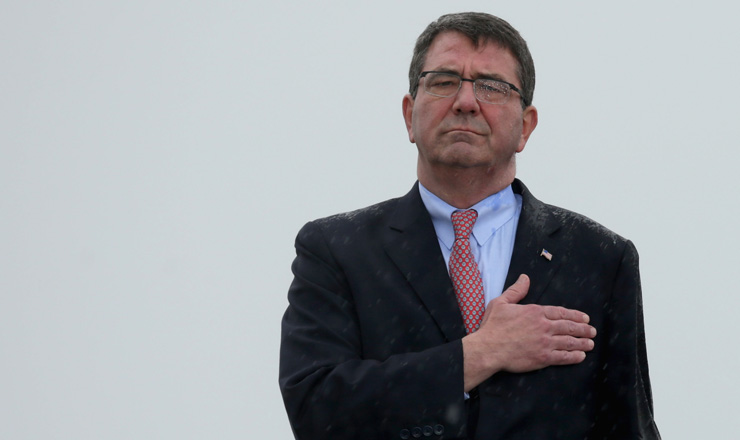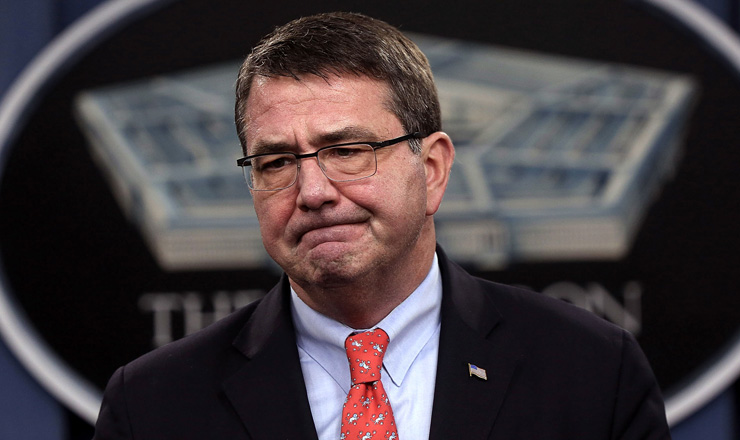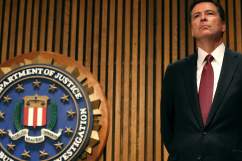
(Getty)
Presumed by sources as Chuck Hagel’s replacement, Ashton Carter, a Pentagon official, is believed to be Obama’s choice as the new Secretary of Defense.
Here’s what you should know about him ahead of an official announcement, which is expected this week:
1. He’s an Academic Who Never Served in the Military
Ashton Carter has faced multiple crises in the Middle East as Deputy Defense Secretary under both Leon Panetta and Chuck Hagel, from October 2011 to December 2013. This gives him experience in a role that would see him helping in the upcoming Afghanistan shift as the NATO combat mission ends. He is the leading contender to replace Hagel and now serves as the Department of Defense’s chief operating officer.
If confirmed by the Senate, Carter will be Obama’s 4th Pentagon chief in his six-year administration as president.
Some are skeptical of Carter because he’s had no military experience. Carter is, however, considered one of the brightest minds in national security.
At a farewell ceremony for Carter, General Martin Dempsey, chairman of the Joint Chiefs of Staff, said of Carter, “It’s lucky for us that you have worked without glamor or fame behind the scenes to make sure through good management and common sense and discipline that we are an organization that continues to adapt to the challenge that we find in front of us. He did it all again without fanfare. In fact, I think he’s been called the most important, least known figure in Washington, or some language to that effect, and I agree with that.”
Michael O’Hanlon, a defense industry analyst at the Brookings Institution, said, “His career has sort of prepared him perfectly for this kind of a moment. … On paper and in terms of his resume and preparation, you probably couldn’t do much better.”
2. He’s Been Awarded the Department of Defense Distinguished Service Medal 4 Times

(Getty)
Carter previously served as Under Secretary of Defense for Acquisition, Technology and Logistics from April 2009 until October 2011, leading the department’s efforts in accelerating urgent operational needs, managing the department’s buying power to strengthen the nation’s defenses against new threats. For contributing to the intelligence community and his efforts, he was also awarded the Defense Intelligence Medal.
He also served as Assistant Secretary of Defense for International Security Policy during the Clinton administration from 1990 to ’93. He was also the Director of the Center for Science and International Affairs at Harvard University’s John F. Kennedy School of Government and Chairman of the Editorial Board of International Security.
3. Carter Believes in Paying More Attention to Cyber-Defense
Carter is associated with a concept known as “preventive defense,” with the basic premise coming after the Cold War and the U.S looking to handle major new security threats, using defensive diplomacy by strengthening security partnerships with China, Russia and others. His view of U.S. defense priorities is said to fit well with the Obama administration’s current philosophy, by building defense alliances and partnerships in Asia and the Pacific, along with countering the spread of weapons of mass destruction.
In 2013, Carter remarked at the Aspen Security Forum, saying the country was “ready to move beyond the wars in Iraq and Afghanistan and to look harder at future threats, including cyberattacks.”
4. He Has a Doctorate in Theoretical Physics

(Getty)
Carter earned bachelor’s degrees in both physics and in medieval history from Yale University, eventually receiving his doctorate in theoretical physics from Oxford University. He’s also held positions at the Massachusetts Institute of Technology, the Congressional Office of Technology Assessment, and Rockefeller University. He’s a Fellow of the American Academy of Arts and Sciences and the American Academy of Diplomacy and is a member of the Council on Foreign Relations and the American Physical Society.
5. Carter Is Married With 2 Kids
Carter has authored articles, scientific publications, government studies, and Congressional testimonies, while also co-editing and co-authoring 11 books. He graduated Yale summa cum laude and was in Phi Beta Kappa. When he graduated from Oxford with his doctorate, he was a Rhodes Scholar. Carter served as the former Co-Director of Preventive Defense Project at Harvard and Stanford universities.
